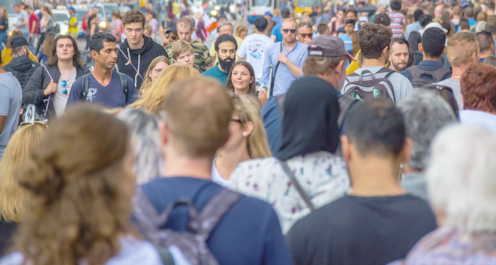Yes, we are a more equal society than most, but not quite as mobile as the Productivity Commission suggests. Here’s why
- Written by The Conversation

If you listened to the Productivity Commission, you would think Australia was a pretty equal place in terms of income and wealth, and particularly good in terms of equality of opportunity.
Its major investigation released last week, entitled Fairly Equal?, found Australia’s income mobility is second only to Switzerland’s.
It’s a high-quality piece of work, created by linking personal income tax, social security and census records and also linking records across generations. This allows the commission to examine how children fare compared to their parents.
The Australian Financial Review welcomed the findings by declaring they “surprised everyone”, which certainly wasn’t true for researchers in the field.
They were broadly consistent with earlier findings.
But the report largely neglects something important that is likely to matter a lot for equality and equality of opportunity.
It’s the role of housing.
Imputed rent matters
There are many ways to define income. The Productivity Commission defines it conventionally but narrowly, excluding so-called imputed rent.
Imputed rent can be thought of as the income someone gets from themselves for something they own, usually a home.
It’s easy to see if you think about landlords. The rent they receive from their tenants is income. If they happen to be their own tenants, paying notional rent to themselves, it remains a benefit and remains income for the purposes of the national accounts.
The Bureau of Statistics calculates imputed rent by applying market rents to owner-occupied dwellings.
Imputed rent is often used in studies of inequality.
When it is, Australian incomes look more equal than when it is not. This is because older people tend to have low cash incomes but high imputed rents.
But more importantly, and more so for Australia than for the United States or Germany, including imputed rent lowers estimates of intergenerational mobility.
So far, only one Australian study has examined this. It finds that including imputed rent cuts Australia’s intergenerational mobility by 22%.
Although this finding should be interpreted cautiously, on the Productivity Commission’s intergenerational mobility graph it would make Australia more like Canada than Switzerland.
Capital gains matter
The Productivity Commission has also paid scant attention to capital gains.
In recent years property price increases have been so large that some houses have earned more than their owners have.
A definition of income that includes changes in net worth may also show Australia was less equal and less generationally mobile than generally thought.
I am working on incorporating changes in the value of housing into measures of inequality and mobility. I don’t yet have results I can share, but they might turn out to matter a lot.
Wealth matters in its own right
If we are really interested in intergenerational mobility (what chance we’ve got of getting a different financial station in life to our parents) it’s worth considering how easy it is to get to a different place in the wealth distribution as well as the income distribution.
Here, the results are mixed, and perhaps concerning.
The commission relies on a study that finds wealth mobility is higher in Australia than in the United States.
But those findings are driven by children aged 20-39. In Australia, the correlation between parental wealth and children’s wealth appears to grow stronger when those children reach middle age.
Indeed, from age 40 onwards wealth mobility becomes lower in Australia than in other places including the US.
Again, there are reasons to interpret these findings cautiously. But they are enough – for now – to persuade us to be cautious in celebrating our apparently exceptional economic mobility.
And enough to encourage us to shift our focus from narrow measures of income towards broader measures of wellbeing, especially those that include housing.
Read more: Your parents' income doesn't determine yours – unless you're ultra rich or extremely poor







